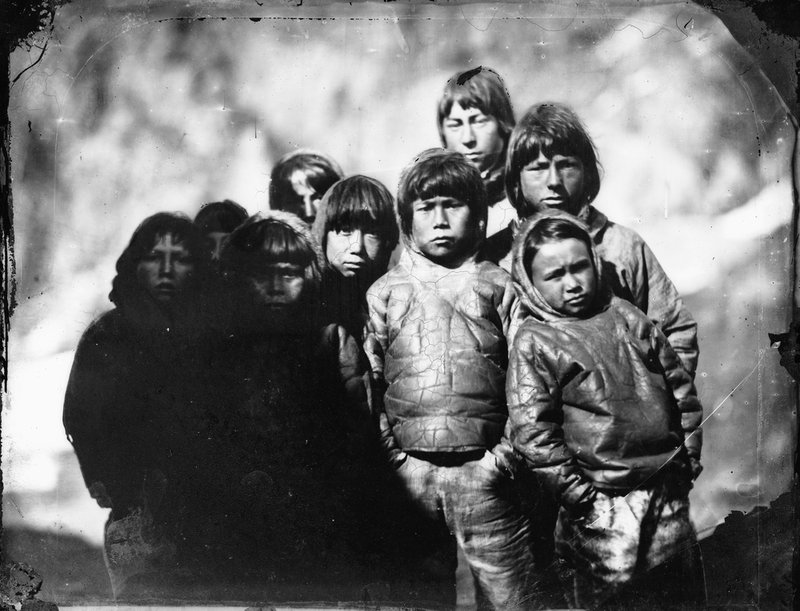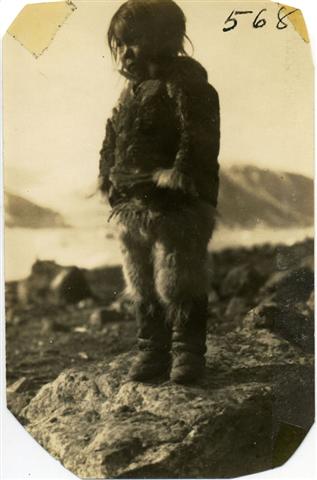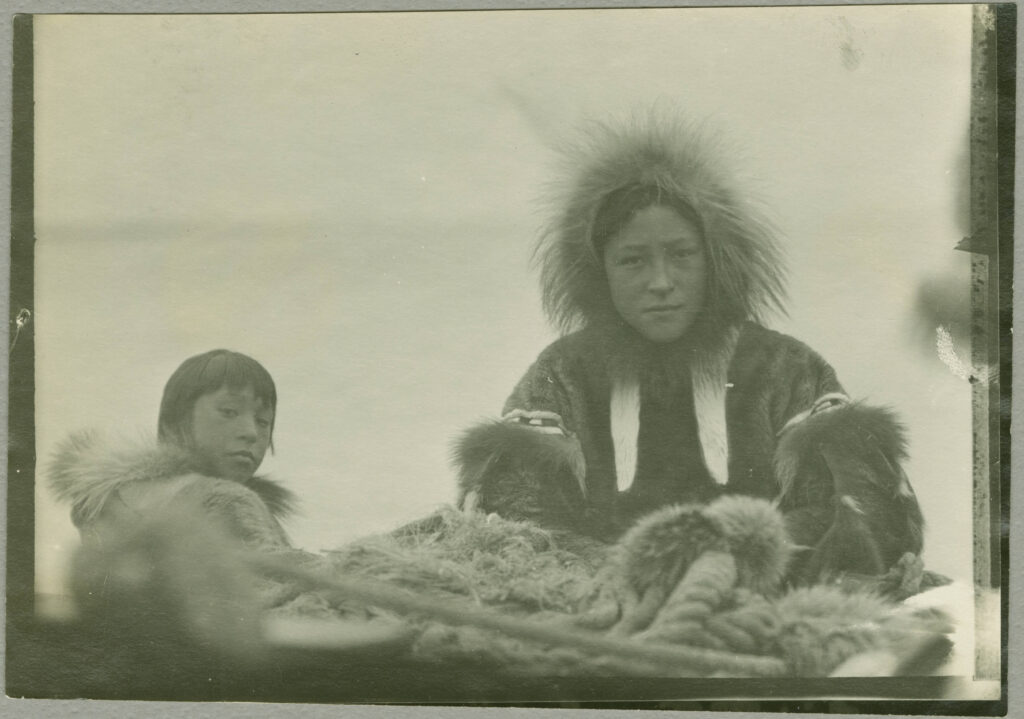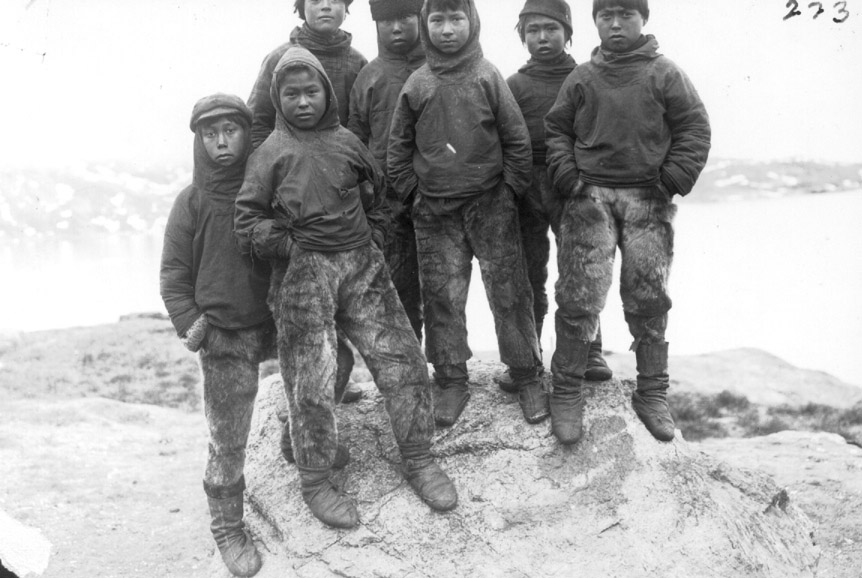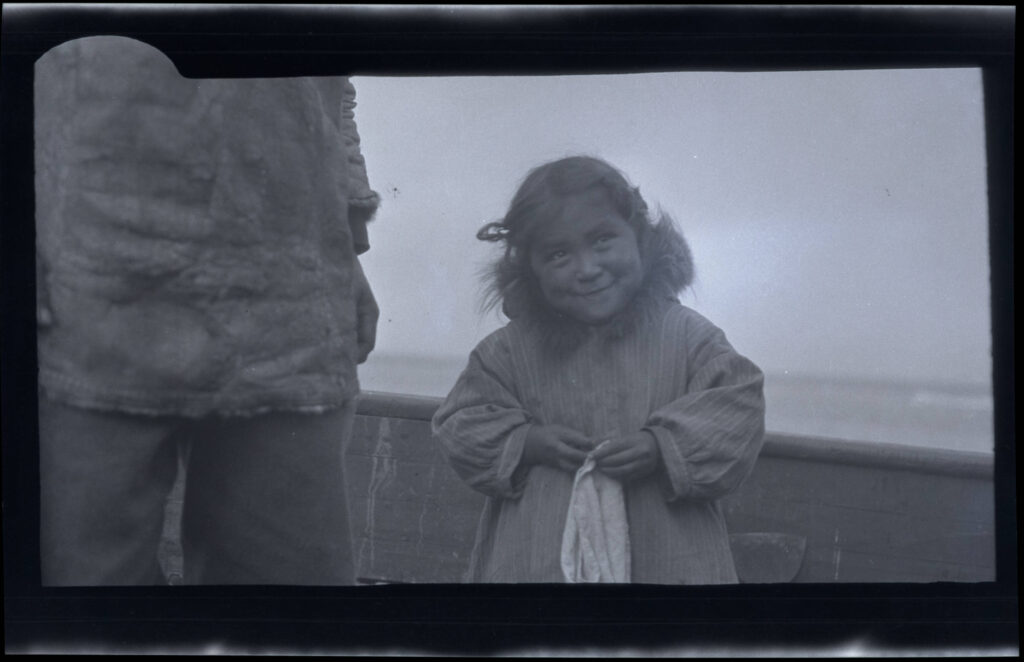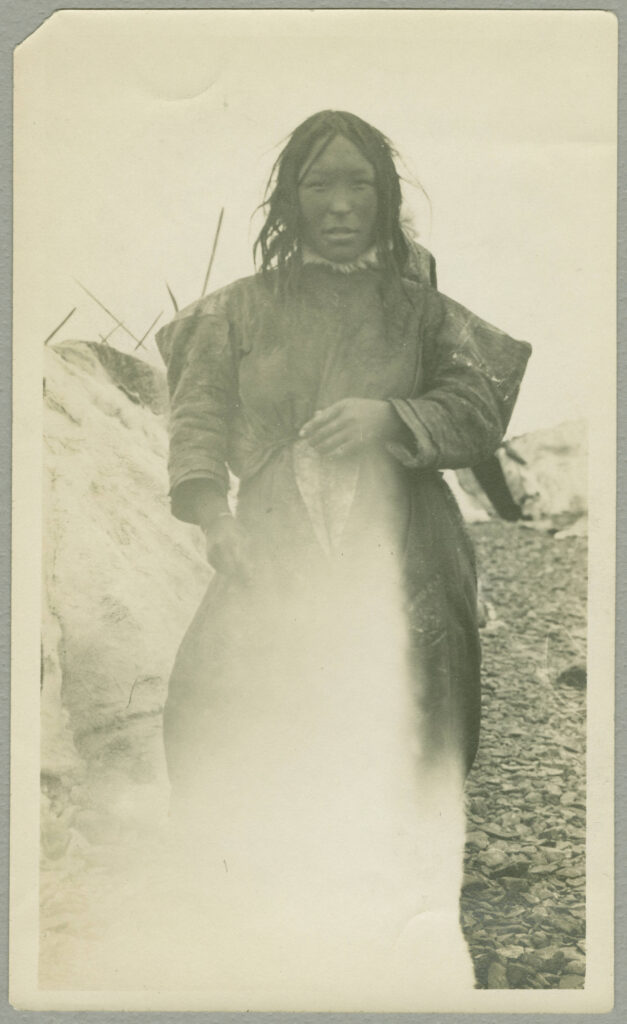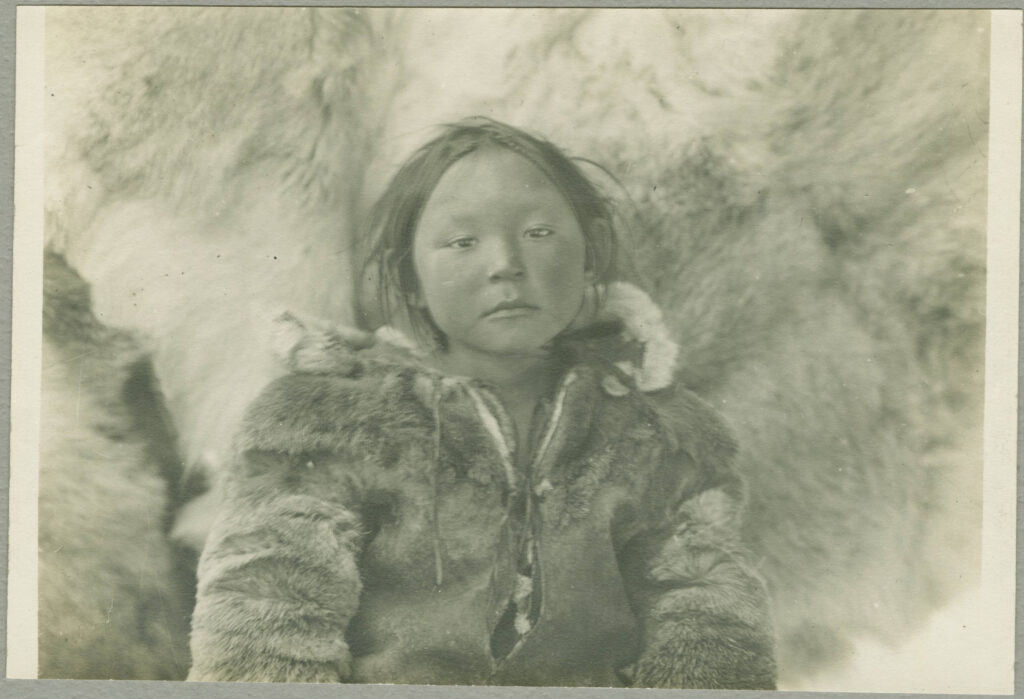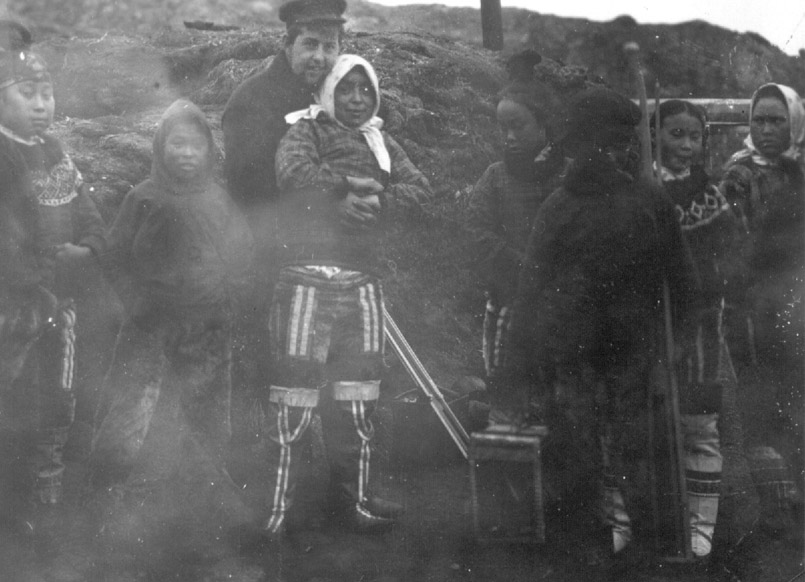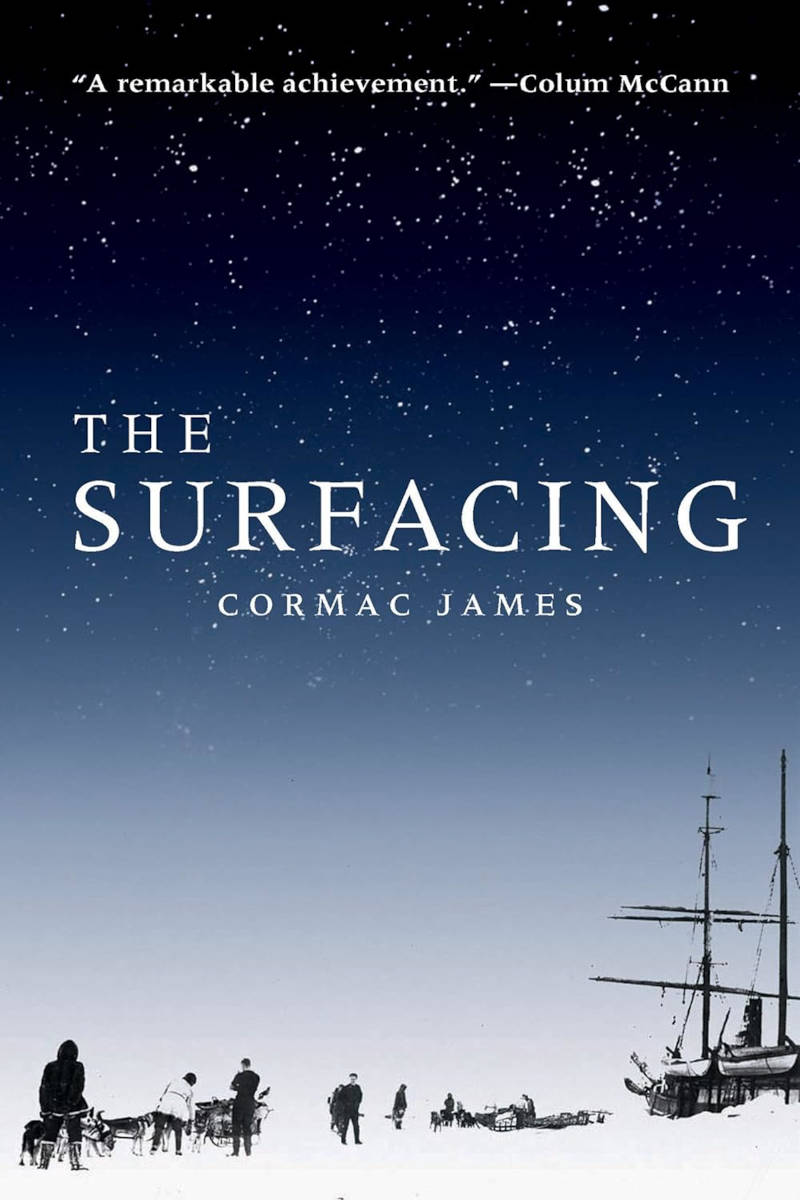
The Surfacing
1850. An Admiralty ship searching for Franklin’s lost expedition. An entirely male world – until Morgan, second-in-command of the Impetus, realises that there is a pregnant stowaway on board, and that he is the father. It’s too late to turn back, the ice is closing in, and the child will have to be born into the wilderness of the remote Arctic.
‘James uses the sublime appeal of the Arctic and the extreme situation of his characters as the stage for an essentially domestic psychological novel. The Surfacing is about how people live together and how we rise to the occasion of pregnancy and birth… This is a book for grownups, one that finds its best hope not in romance or friendship or the drama of seeking and finding, because none of those things happen, but in the capacity of human beings to endure… It is an austere pleasure to read.’ — The Guardian More…
“That day they hauled across the ice for twelve hours straight, with never more than a few minutes’ pause, until finally Cabot collapsed. It was neither exaggeration nor display. Morgan himself stood clinging to the sledge, knew that without it he would fall. Daly too had let himself crumple to the ground, and Petersen was standing over them, ordering them to get up. He was roaring. He was right. It would be better, afterwards, to be able to say you had still been able to stand. Stretched out on the ice was too much of a concession. You were beaten, with no further asylum. It was your back against the wall.”
The Ship
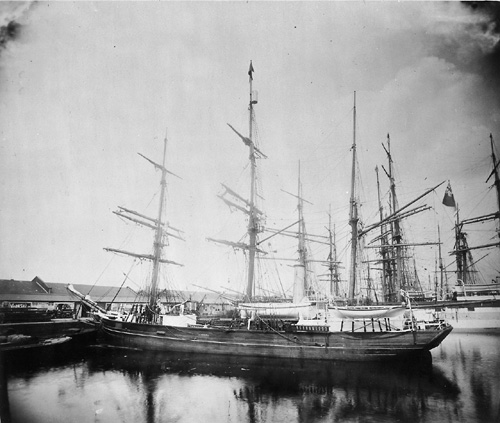
The Crew
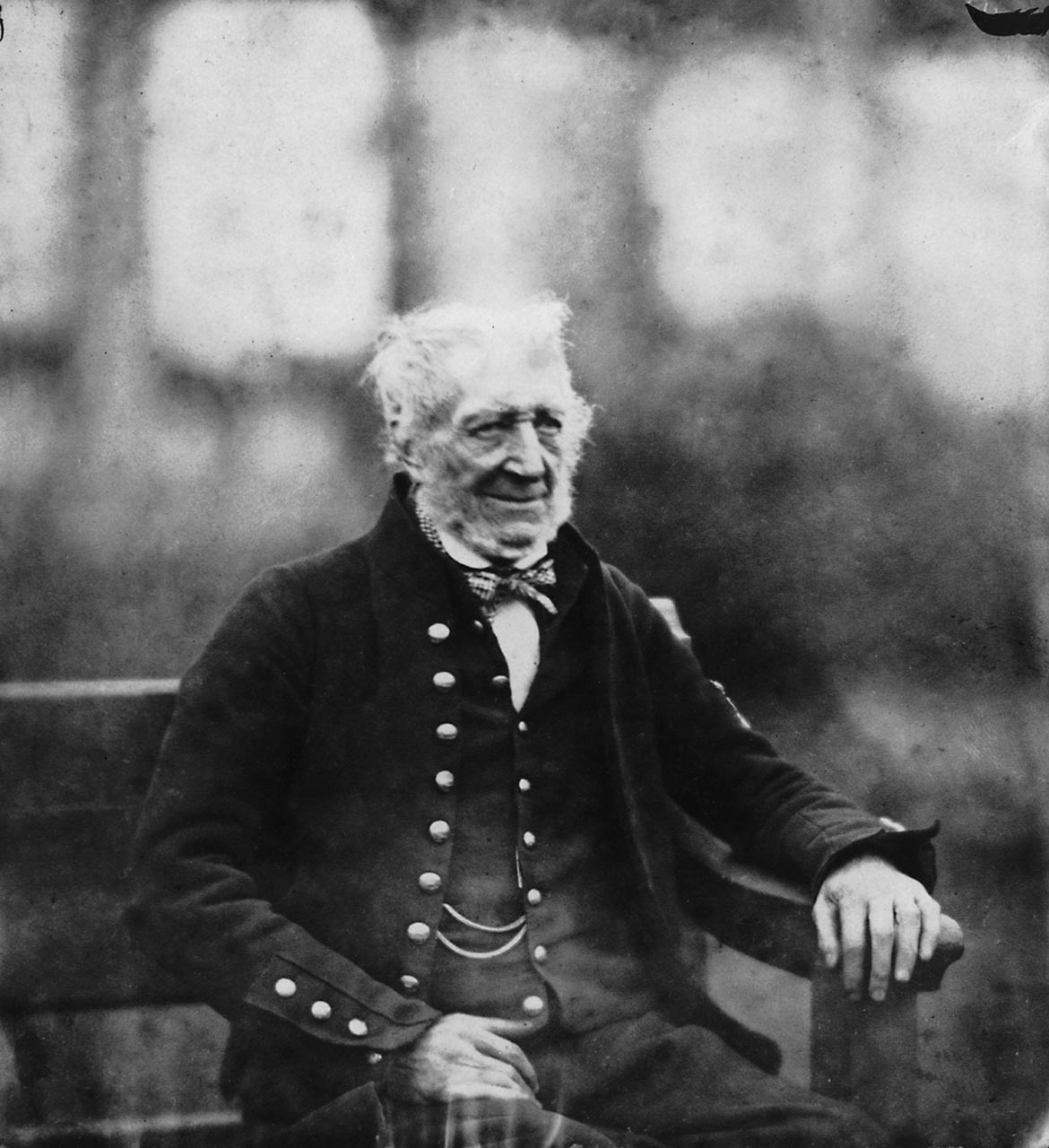
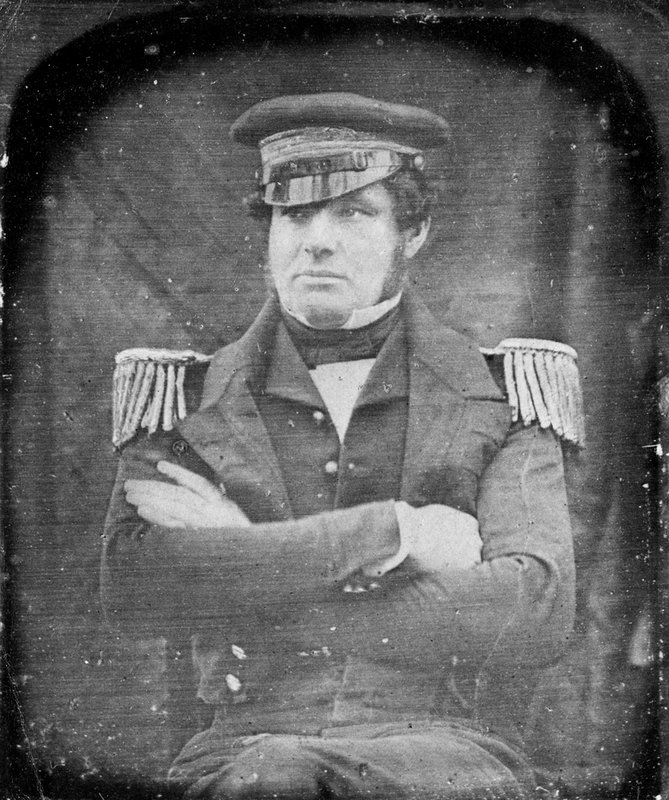
Disko
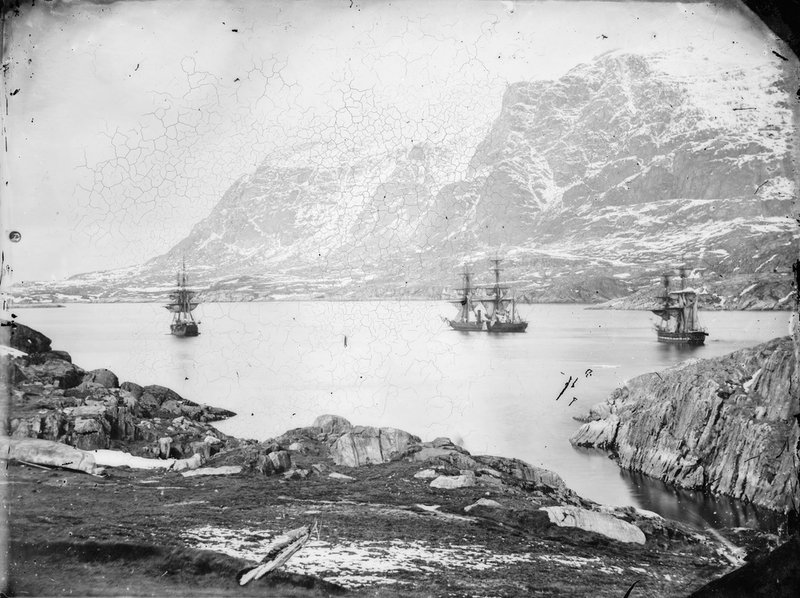

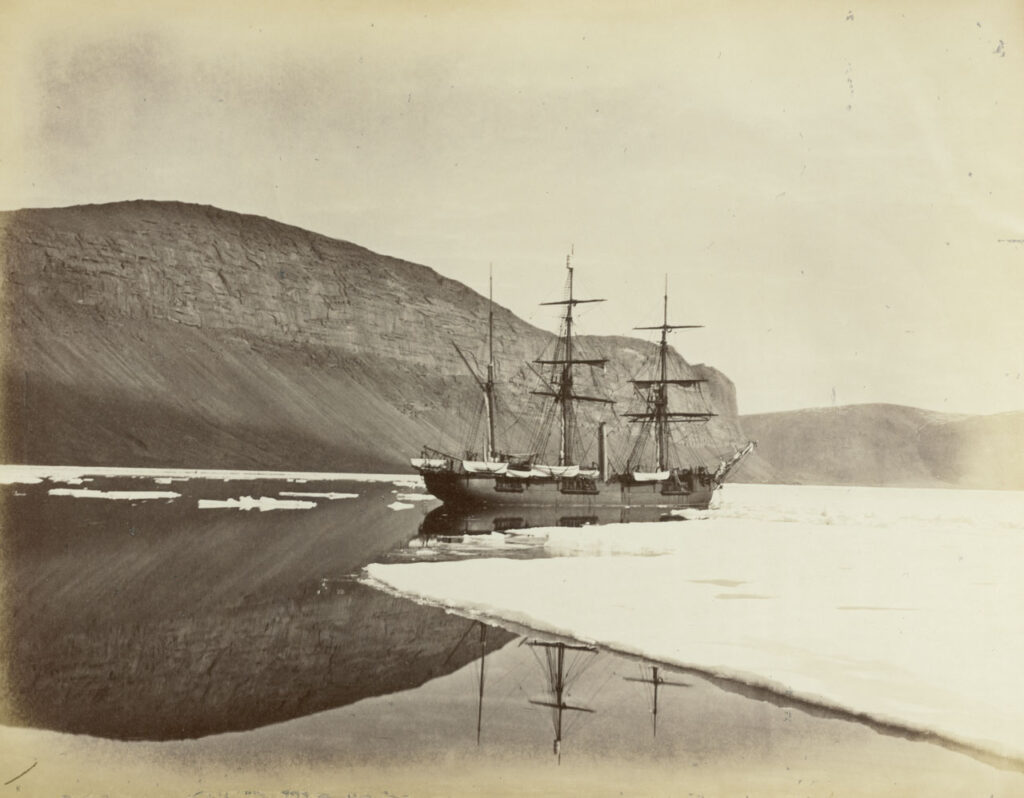
A starboard quarter view of ‘Alert’ detained by the ice. Nares Expedition (1875)

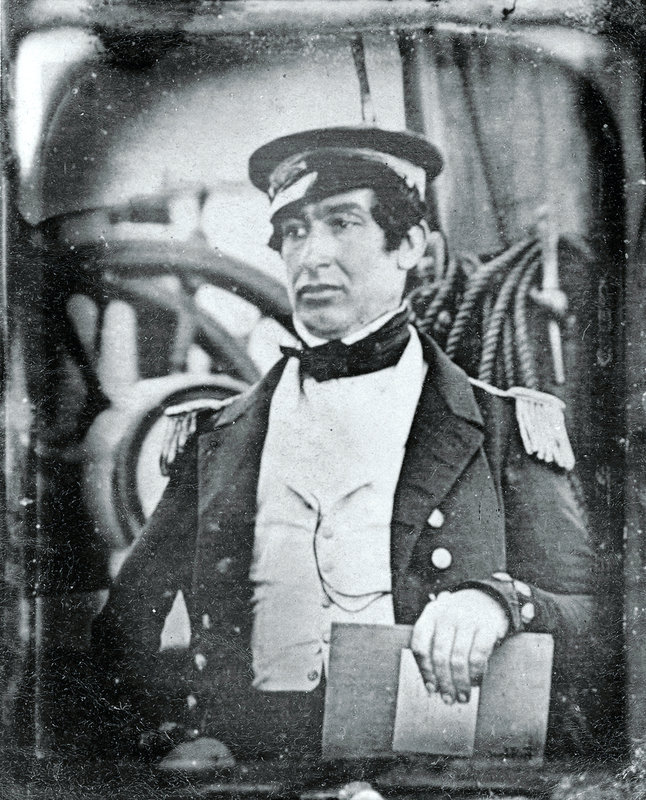
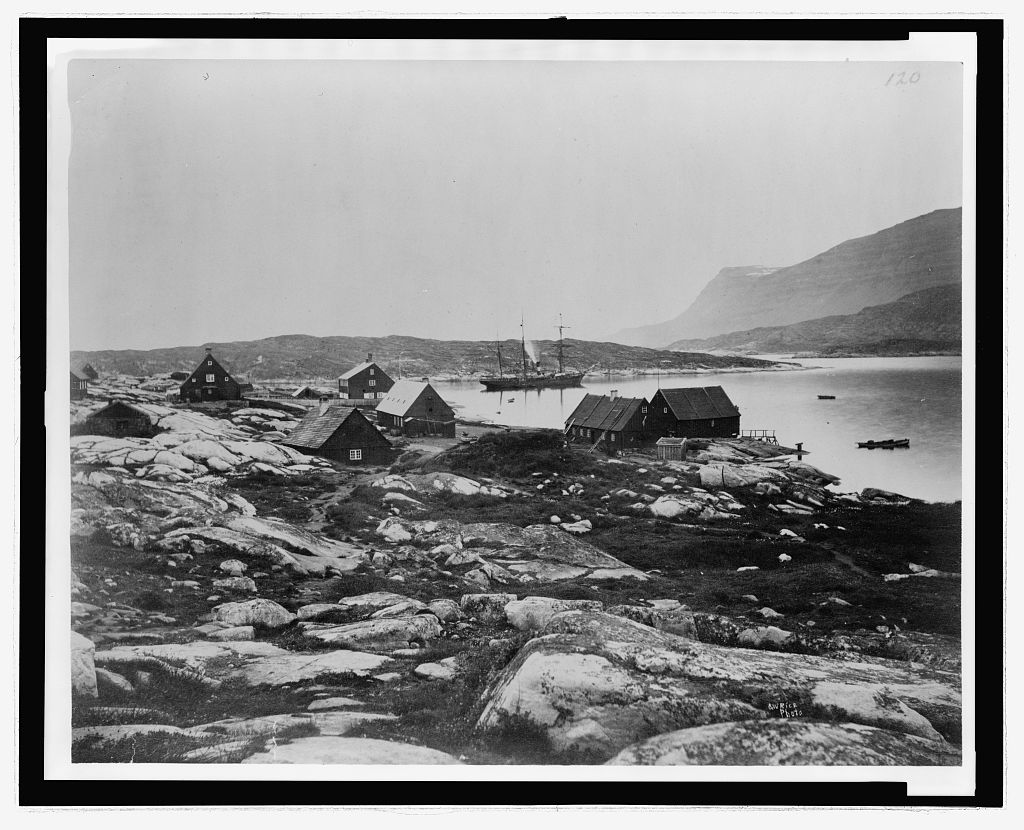
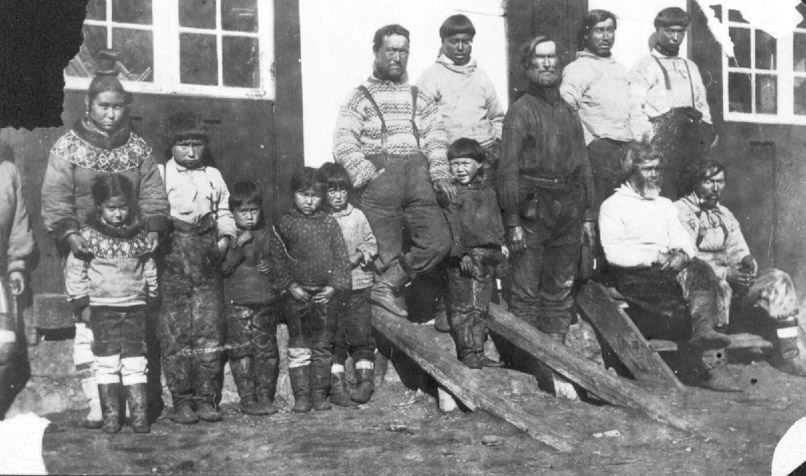
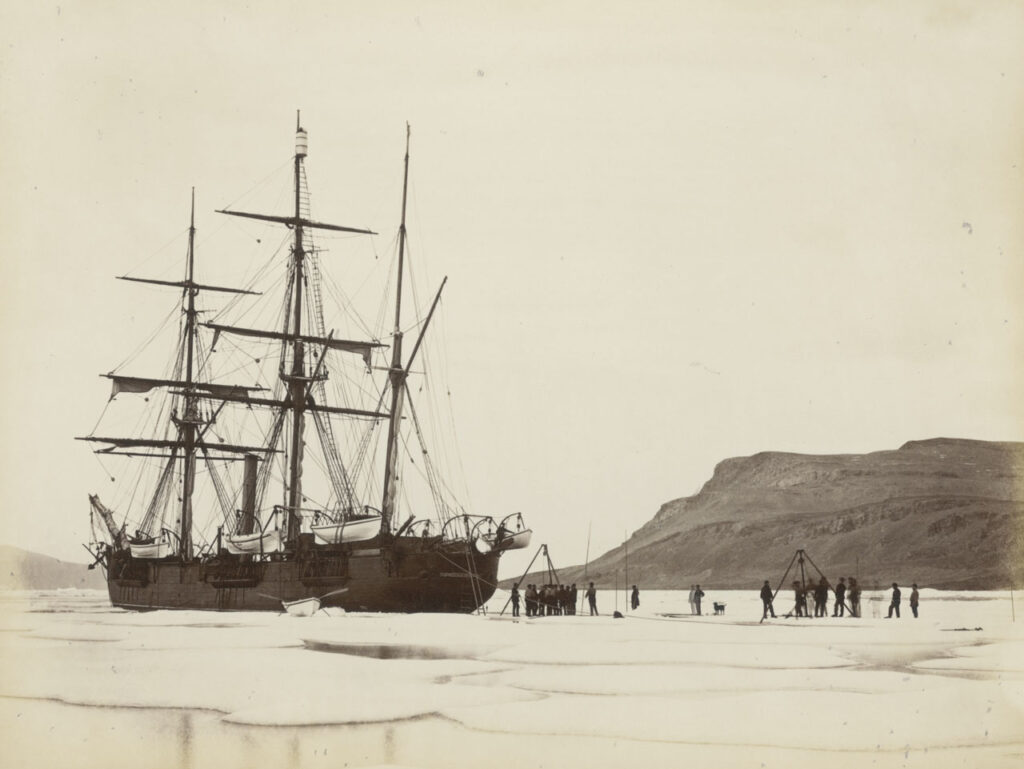

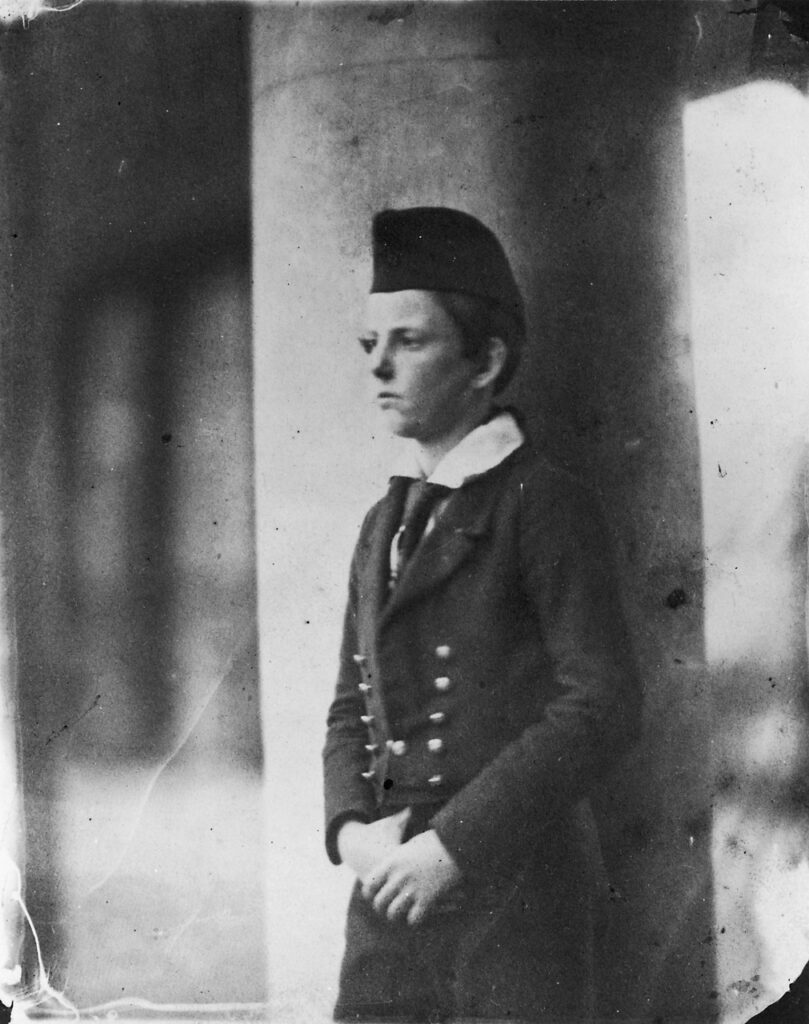


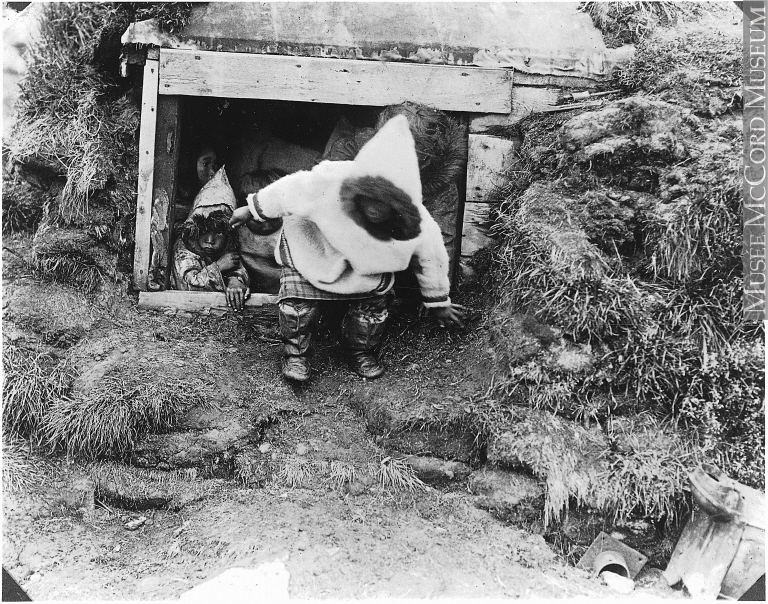
Inuit children at entrance of sod dwelling, 1920? (G.E. Mack, McCord Museum)
The Inuit
